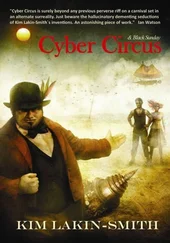This weekend Addie is in town for her class reunion, but she isn’t staying with Claree. She’s rented a room at Comfort Suites, where they’re holding the reunion. It’ll be a late night, Addie says, and she doesn’t want to wake Claree when she comes in, or keep her up waiting. Claree appreciates the thought. Of course she’ll leave the front porch light on anyway, just in case.
Knit one, purl three.
Claree would let a grandchild do all the things she never let her children do. Jump on the bed. Stay up late. Make messes. “You’re a mess,” she would say, and gather the child in her arms, and her hands wouldn’t hurt, or if they did it wouldn’t matter. “A little old mess.”
The first time Elle went fishing with her parents, her father caught a long golden spotted fish with a red gash under its jaw. A cutthroat trout. He pulled out the hook and showed the fish to Elle, his hand pink with watery blood. “Look at its eye,” he said. “See? A fish doesn’t feel.” And threw it back into the lake.
Elle remembers the eye, that flat look, the trout’s fear that it was already dead.
She’s been pawning things — jewelry, her mother’s silver, things she thinks no one will miss. The last thing was Roland’s guitar, the one he’d had since high school, an old Strat he hadn’t taken out of the closet since their last move. She’s been borrowing money from her aunt and uncle. They never ask questions. This is their way of being kind.
She wishes they would ask questions.
If they asked, she would tell them the truth. I’m losing , she would say. I’ve been losing for a long time . She practices in her mirror, silently, watching her mouth form the words.
The only way to change her luck is to quit playing. She decides this will be her last morning at her machine. She’s only come to say good-bye.
She has to wait. There’s another woman in her seat, a tall woman with white hair and perfect posture. The woman is perfectly calm, even when she hits a four of a kind. She plays the way Elle never learned to — as if she’s used to winning.
The Reno post office is a big stone building, cool as a tomb. For Elle, picking up the mail is more than a routine errand. She’s intercepting evidence: late notices, collection letters. Today, two yellow envelopes with glaring red past-due stamps. Also a pale blue envelope addressed to Roland. The return address — Raleigh, North Carolina — is unfamiliar. The handwriting is a woman’s. Small, delicate, controlled.
She puts the letter in her purse to read later. For now, she has more important business. She is going to see her aunt and uncle. She’s going to tell them the trouble she’s in. They won’t be happy but they will forgive her; they’re forgiving people. They won’t let anything happen to Dusty.
It’s a hot day. She’s sweating all over, even her hands and feet. She rolls down her car window. Is this what it means to be brave, to do the thing you’re most afraid of? Reveal the thing you’re most ashamed of? She feels dizzy, buoyant, the way you feel when you’re in the deep end of the pool and you’ve just touched bottom and you’re starting to come up for air. You can see the surface, the light above the water.
When she arrives at her aunt and uncle’s house there’s no car in the drive, no answer at the door, no note on the kitchen table. Is she supposed to know where they are? Did they tell her; did she forget?
She drives home in a daze. Her house, she knows, will be empty — Dusty is at school, Roland at work. She turns into the driveway, presses the remote for the garage door, and pulls in.
The garage has always made her feel rich — the metal door that closes behind her, the automatic overhead light. She parks and sits for a minute, savoring these little luxuries. The car is idling, the window still rolled down. The blue envelope is sticking out of her purse. She opens it and reads the signature first.
Love, Addie .
Roland’s North Carolina girlfriend. The woman she had to move out for. It was New Year’s, the year before Dusty was born. They were living in Venice Beach. She had to move in such a hurry she forgot things — record albums, liquor, her favorite blouse.
Remembering that time makes her head ache. She is suddenly tired. The heat in the garage is suffocating.
The letter looks intimate, two pages filled to the margins with tiny blue script. She can’t read it word for word — the words are too small and crowded and she is too hot and tired. Something about a class reunion. But you didn’t come .
Roland never mentioned a reunion. Did he know about it?
Pet would have told him, surely. She would have offered him plane fare home. Anything to get him back.
The garage light blinks off; the garage goes dark. Elle puts the letter down, leans her head against the back of her seat and takes a deep breath. There’s almost no air in the air, only heat. She’s drowning in heat.
But you didn’t come. Why?
Roland didn’t go. He stayed home with her. He chose her.
Her car is still idling; she’s forgotten to turn it off. Her window is open. The blue letter is in her lap. She has that feeling again, of being under water, coming up. She’s near the surface. There’s light above. If she closes her eyes, she can see it.
Addie had been certain he would call the minute he got her letter, or the next day, or the next.
It’s been a month now, and still no word.
She can’t sleep. At night she paces. During the day she is curt with customers. She argues with Peale, badgers the mailman. She fires Vivian — twice — and rehires her.
Everyone is afraid of her. Everyone avoids her.
Sometimes when she is alone in the store, she throws books — cheap paperbacks. Sometimes she screams. The screaming, finally, is what scares her into calling the lawyer again.
“What’s he thinking?” she says. “What can he do?”
“You understand I bill for phone consultations at my regular hourly rate,” the lawyer says.
“Of course.” She is on the edge of screaming again.
“So let’s start with, what do you want him to do? What do you want from him?”
“Nothing. Just to talk — I want him to call me. Talk to me.”
“But legally , what do you want? I’m a lawyer; what advice do you want from me?”
“Here’s what I want. I want him not to do anything that could hurt our son. I read about a case where a birth parent was able to undo an adoption.”
“You’re thinking of the Clausen case from Michigan. It made all the papers. Different jurisdiction, and a completely different situation. That child was much younger; her adoptive parents basically kidnapped her. Your son — Burt? — is ten. His adoptive parents came by their rights legitimately. They’re the only family your son has ever known. Unless they’ve been bad parents, no sane judge would uproot the child now, even if the father did challenge the adoption. Which in my opinion is extremely unlikely.”
“It is?”
“Yes. Any lawyer is going to tell him the same thing I’m telling you. He can’t win. He’d just be throwing away money — a lot of money — and possibly disrupting the life of his child.”
Addie pictures the lawyer in her red power suit, her wall of diplomas and plaques — was there a trophy on her credenza? But no family pictures anywhere. A family lawyer with no family.
“What about me?” Addie asks her. “Can he do anything to me?”
“You mean sue you?” The lawyer laughs. Her laugh, like everything else about her, is quick and sharp. “Only if by not telling him earlier, you somehow damaged him. If he’s like most men, you probably did more damage by telling him the truth.”
Читать дальше












